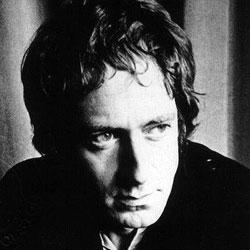 John Barry Prendergast, shortened for the sake of having a more concise name for his career, already had a fairly good one before 1962. He had The John Barry Seven group and was a relied-upon arranger — EMI Records had him under contract as such from 1959 to 1962, arranging for their artists the orchestral backdrops and strings sessions found on several pop tunes. He had also ventured into the world of film and television composition a couple times, enough to get his feet wet. Then, one day, he was approached by a man with a license to kill, balancing a martini in one hand (shaken, not stirred) and a gleaming ring of keys in the other. He strolled up to a fabulous Aston Martin and told Barry to get in. He obliged. His world was never the same.
John Barry Prendergast, shortened for the sake of having a more concise name for his career, already had a fairly good one before 1962. He had The John Barry Seven group and was a relied-upon arranger — EMI Records had him under contract as such from 1959 to 1962, arranging for their artists the orchestral backdrops and strings sessions found on several pop tunes. He had also ventured into the world of film and television composition a couple times, enough to get his feet wet. Then, one day, he was approached by a man with a license to kill, balancing a martini in one hand (shaken, not stirred) and a gleaming ring of keys in the other. He strolled up to a fabulous Aston Martin and told Barry to get in. He obliged. His world was never the same.
Back then, the catchphrase would have been more like, “Who? James who?” Prior to Dr. No, Bond was just a character in a series of spicy novels written by Ian Fleming. The series was a sensation and Bond was the Lisbeth Salander of the day, but that didn’t mean this movie was going to amount to anything. Barry was brought on to re-arrange the “James Bond Theme.” The producers of the film didn’t feel Monty Norman’s go at it was gutsy enough. It lacked punch, so they believed. Barry was called in merely to orchestrate that track and, as these things sometimes turn out, wound up giving voice to the entire series, either in full or in spirit.
For many years, Barry claimed to be the author of the track. Norman, who was the composer for the film, cited the theme was based on “Good Sign Bad Sign,” a song he wrote for the show, A House For Mr. Biswas. Monty won two libel suits against Barry’s claim, but in almost all other aspects, Barry came out the winner. It is his contributions that people remember most, as he was hired on as the composer for the Bond films afterward.
Filling his shoes, composer David Arnold has been with the franchise ever since 1997’s Tomorrow Never Dies, but Arnold has always maintained his debt to Barry. In several recent interviews, he spoke of his conversations with Barry, and one presumes those conversations eventually drifted toward Bond, James Bond.
To tag Barry solely with that one character is to miss the totality of his work though — the soaring theme of Born Free, scores for Out of Africa and Dances With Wolves, the menacing synth whistle that underpins the score for Disney’s The Black Hole. That last one is particularly effective as it conveys the majesty of space in large, strings-fueled passages, but just above it is that whistle, sounding not unlike a deranged Jack The Ripper, skulking around the periphery of the black hole, waiting for victims.
 There was one movie that seemed to elude Barry, as far as recognition goes. Sure, we recognize his theme from Midnight Cowboy (although some of us recognize it more from the cover version by Faith No More), but more people recall Harry Nilsson’s oddly sunny “Everybody’s Talkin'” more immediately, and in some way that is perfectly fine. In the film music business, nobody really can say what will stick and what won’t. That’s how it was with Barry and Monty Norman, and with Barry and Harry Nilsson.
There was one movie that seemed to elude Barry, as far as recognition goes. Sure, we recognize his theme from Midnight Cowboy (although some of us recognize it more from the cover version by Faith No More), but more people recall Harry Nilsson’s oddly sunny “Everybody’s Talkin'” more immediately, and in some way that is perfectly fine. In the film music business, nobody really can say what will stick and what won’t. That’s how it was with Barry and Monty Norman, and with Barry and Harry Nilsson.
Not all that Barry touched turned to gold, and his name will always be attached to every copy of Howard The Duck that exists in this world, but that is the mark of a good film music composer, to take whatever comes and do great things with it, because you never really know what is going to change your life until it’s been changed. The life of movies was definitely changed with his presence. It will no doubt do the same in light of his absence.
John Barry passed away on Sunday, January 11.
That Fatal Kiss (Love Theme from A View To A Kill)
I Had A Farm In Africa (Main Theme from Out of Africa![]() )
)
Looks Like A Suicide (Main Theme from Dances with Wolves![]() )
)
The Lion In Winter (Main Theme from The Lion in Winter![]() )
)





Comments